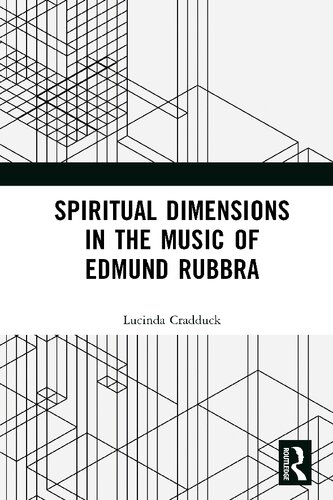

Most ebook files are in PDF format, so you can easily read them using various software such as Foxit Reader or directly on the Google Chrome browser.
Some ebook files are released by publishers in other formats such as .awz, .mobi, .epub, .fb2, etc. You may need to install specific software to read these formats on mobile/PC, such as Calibre.
Please read the tutorial at this link: https://ebookbell.com/faq
We offer FREE conversion to the popular formats you request; however, this may take some time. Therefore, right after payment, please email us, and we will try to provide the service as quickly as possible.
For some exceptional file formats or broken links (if any), please refrain from opening any disputes. Instead, email us first, and we will try to assist within a maximum of 6 hours.
EbookBell Team

4.0
6 reviewsEdmund Rubbra’s music has given him a reputation as a ‘spiritual’ composer, who had an interest in Eastern thought, and a mid-life conversion to Roman Catholicism. This book takes a wide and detailed view of ‘spiritual’ dimensions or strands that were important in his life, positioning them both biographically and within the context of contemporaneous English culture. It proceeds to interpret through detailed analysis the ways these spiritual aspects are reflected in specific compositions.
Thematical treatment of these spiritual issues, touching on Theosophy, dance, Eastern religions and thought, nature, the evolutionary theory of Teilhard de Chardin and the Christ figure, presents a multi-faceted view of Rubbra’s life and music. Its contribution to a scholarly re-evaluation of his place within twentieth-century British music and culture engages and meshes with several areas of current scholarly research in the arts and humanities, including academic interest in Theosophy, modernism and the arts, experimental dance and the Indian cultural renaissance and East–West musical interactions of the late nineteenth and early twentieth centuries. It also adds to a burgeoning body of writings on music and spirituality, fuelled by the popularity of later twentieth-century and contemporary composers who make more overt spiritual references in their music.